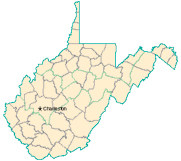 The People’s Republic of China will become the world leader in fiber optic network deployment by 2016, with more than 50 percent of all fiber subscribers worldwide residing in the country, according to a new report from research firm Ovum.
The People’s Republic of China will become the world leader in fiber optic network deployment by 2016, with more than 50 percent of all fiber subscribers worldwide residing in the country, according to a new report from research firm Ovum.
The unprecedented growth in fiber networks comes through a combination of government incentives, including subsidies and private-public partnerships, and cooperating Internet Service Providers, who want to reach more customers.
In fact, with the Chinese government aggressively pursuing and monitoring broadband upgrades, China will rapidly exceed broadband deployments found in other countries in Asia, including Korea and Japan. That could allow China to become the global leader in broadband before the end of the decade.
China Telecom is one of the providers that is moving the country towards dominance in fiber deployments, on track to pass 26 million homes with fiber networks this year.
Through the company’s “Broadband China — Fiber Cities” project, China Telecom should pass 100 million homes with fiber broadband access by 2015, with the help of contractors like Alcatel-Lucent.
In smaller cities and rural areas, combination fiber and copper networks plan to deliver temporary speed upgrades with technology similar to AT&T U-verse. But China sees such upgrades as interim, until additional fiber networks can be constructed.
 The upgrades are a win-win for China and its citizens. China’s telecommunications companies are enjoying new revenue opportunities for their wired networks, Chinese citizens will eventually obtain some of the fastest broadband speeds on the planet, and the Chinese government wins an advanced telecommunications network on which it plans to continue growing the country’s digital economy and helping spur additional manufacturing and export opportunities.
The upgrades are a win-win for China and its citizens. China’s telecommunications companies are enjoying new revenue opportunities for their wired networks, Chinese citizens will eventually obtain some of the fastest broadband speeds on the planet, and the Chinese government wins an advanced telecommunications network on which it plans to continue growing the country’s digital economy and helping spur additional manufacturing and export opportunities.
So far, China’s large expanse and large rural, often poor population found further inland are not inhibiting China’s infrastructure development plans.
“You cannot become one of the world’s most powerful nations if you can’t deliver basic services to your own citizens,” says Wu Dan, a development coordinator for the Chinese government. “With clean water, good roads, reliable power, and advanced telecommunications, China’s western cities will grow and become as important as coastal cities in China’s progress. Internet access is a part of that progress.”


 Subscribe
Subscribe






